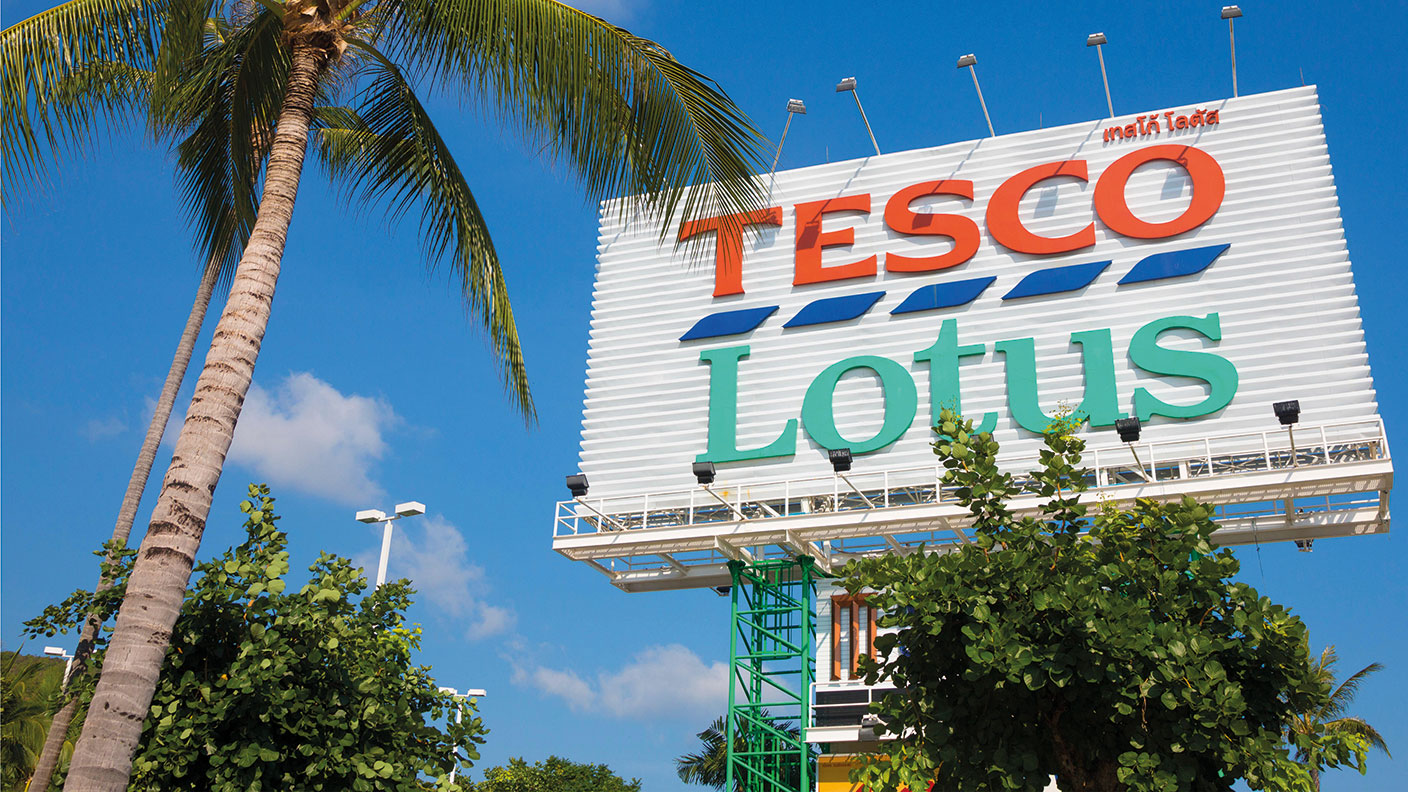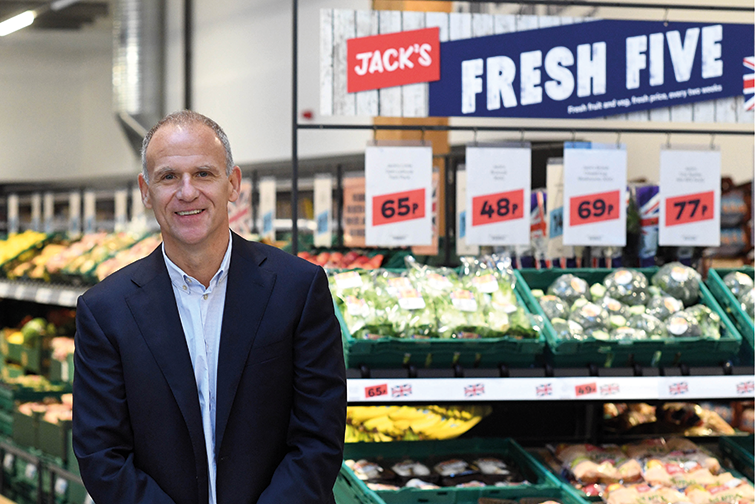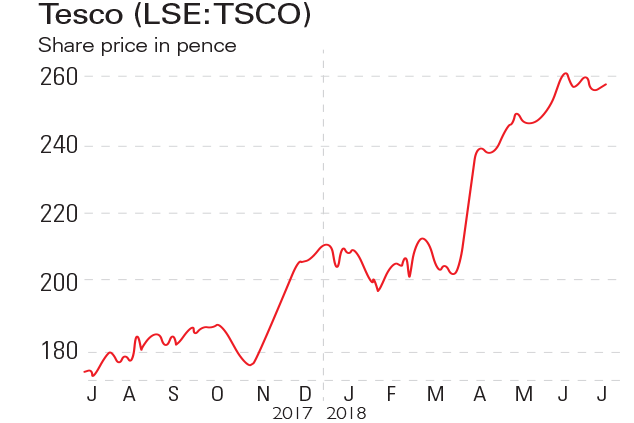Tesco shares could tank below a pound
Tesco is in big trouble. Its half-year results make grim reading, its chairman is leaving, and the share price is plummeting. Phil Oakley looks at where Britain's biggest supermarket chain goes from here.
Get the latest financial news, insights and expert analysis from our award-winning MoneyWeek team, to help you understand what really matters when it comes to your finances.
You are now subscribed
Your newsletter sign-up was successful
Want to add more newsletters?

Twice daily
MoneyWeek
Get the latest financial news, insights and expert analysis from our award-winning MoneyWeek team, to help you understand what really matters when it comes to your finances.

Four times a week
Look After My Bills
Sign up to our free money-saving newsletter, filled with the latest news and expert advice to help you find the best tips and deals for managing your bills. Start saving today!

So Tesco's chairman, Sir Richard Broadbent, is stepping down. Some people seem to be quite pleased about this. Yet, if you are a shareholder in Tesco, it probably doesn't make a blind bit of difference. Broadbent has undoubtedly made some mistakes, but he is not to blame for Tesco losing touch with its customers.
Today's half-year results make for grim reading. They show in stark detail how badly broken Tesco is, and the gigantic task it faces trying to fix it. If you are thinking of buying shares in Tesco, or are a long suffering shareholder, these are the key points from today's announcement:
Tesco's UK trading profits have collapsed
The vast majority of any value that exists in Tesco shares comes from its core UK supermarkets business. The news here is terrible. Profits have collapsed from £1.1bn a year ago to £499m. What's even more shocking is that the all-important profit margin has fallen from 5.2% to just 2.3%.
MoneyWeek
Subscribe to MoneyWeek today and get your first six magazine issues absolutely FREE

Sign up to Money Morning
Don't miss the latest investment and personal finances news, market analysis, plus money-saving tips with our free twice-daily newsletter
Don't miss the latest investment and personal finances news, market analysis, plus money-saving tips with our free twice-daily newsletter
Tesco is losing customers at an alarming rate as shown by the 5.4% decline in like-for-like sales in the three months from May to August. It's all very well cutting prices, but if more customers don't come through the doors and put more stuff in their trolleys then you have a problem. This seems to be what is happening at Tesco.
At the same time, underlying costs are increasing. Many stores need money spent on them to entice shoppers back. How on earth does Tesco stop profits from falling?
Things are terrible elsewhere too
Tesco Bank looks to be doing reasonably well, but it will never contribute a large amount to the share price. What's worrying is that trading in Tesco's overseas supermarkets with the exception of the Czech Republic and Turkey is falling sharply. Sales declines in Asia look almost as bad as those in the UK, while Slovakia and Ireland are faring even worse. These businesses are in need of a lot of attention as well.
Never mind the profits, the cash flow is terrible
One of the chief problems facing all the UK supermarkets not just Tesco is their inability to generate any meaningful amounts of free cash flow. Granted, they have been great at getting cash in the door (mainly by squeezing the payment terms on their suppliers), but they have struggled to hold on to the cash as it has been ploughed back into keeping supermarkets looking nice and opening new ones.
While Tesco was growing its sales every year, it was able to get more and more cash flow from its suppliers by negotiating tougher terms. This was because Tesco turned goods into cash long before it had to pay for them, and it was able to delay these payments for longer thanks to its strong negotiating position.
However, if sales go down, Tesco's negotiating power shrinks. During the first half of this year, Tesco has lost over £400m due to this problem. Tesco's free cash flowbetween February and August was minus £280m compared with broadly break-even a year ago even though investment spending was lower. This is a very worrying development and could get worse. It explains why the dividend has been slashed by 75% Tesco can't afford a bigger payout to shareholders.
Will Tesco shareholders be asked for more cash?
Tesco's debts are going up. It also has lots of hidden debt (around £11bn) as it has remortgaged a lot of its UK supermarkets by selling them to property companies and renting them back (known as sale and leaseback'). Throw in the poor cash-flow performance, and it's not difficult to see how finances could get a bit tight.
I've no doubt that businesses such as Blinkbox and Dobbies Garden Centres could be sold off to raise some cash. But Tesco might need some more cash to give itself enough breathing space to turn itself around
The company talks about protecting and strengthening its balance sheet. One way to do this is to ask shareholders for more cash through a rights issue. If this option is taken, then Tesco's share price may still have a long way to fall.
How much are Tesco shares worth?
The company is in a very big mess. It has no credible turnaround plan and lots of problems to fix. A couple of months ago it said it expected trading profits for this year to be around £2.4bn to £2.5bn. Now it essentially says that it hasn't got a clue. But you can be reasonably sure its profits are going lower.
If people can't predict Tesco's profits then how on earth do you value its shares? You could have a look at its balance sheet value but the news here is not good. Tangible net asset value (TNAV) per share a year ago was 147p. Today it is 116p.
Given that Tesco's return on capital employed (ROCE) arguably the most important measure of company performance is currently a poor 9.2%, then you could argue that the value of the assets on its balance sheet are overstated. If more shares are issued in a rights issue then Tesco's TNAV per share looks set to fall further.
I've no idea what Tesco shares are really worth. But I wouldn't be paying 174p for them today. Not so long ago it would have been unthinkable to envisage Tesco's share price below 100p. Given the mess the company is in, I would not be at all surprised if this came to pass.
I'd stay clear for a while yet.
Read more Moneyweek articles on Tesco
This is no buying opportunity Tesco goes from bad to worse
What Tesco's dividend cut tells us about the future for stocks
Company in the news: Tesco
Tesco gets a new boss but it's not time to buy yet
Get the latest financial news, insights and expert analysis from our award-winning MoneyWeek team, to help you understand what really matters when it comes to your finances.
Phil spent 13 years as an investment analyst for both stockbroking and fund management companies.
-
 Should you buy an active ETF?
Should you buy an active ETF?ETFs are often mischaracterised as passive products, but they can be a convenient way to add active management to your portfolio
-
 Power up your pension before 5 April – easy ways to save before the tax year end
Power up your pension before 5 April – easy ways to save before the tax year endWith the end of the tax year looming, pension savers currently have a window to review and maximise what’s going into their retirement funds – we look at how
-
 How to profit from rising food prices: which stocks should you invest in?
How to profit from rising food prices: which stocks should you invest in?Tips Food prices are rising – we look at the stocks to avoid and the one to invest in this sector.
-
 Tesco looks well-placed to ride out the cost of living crisis – investors take note
Tesco looks well-placed to ride out the cost of living crisis – investors take noteAnalysis Surging inflation is bad news for retailers. But supermarket giant Tesco looks better placed to cope than most, says Rupert Hargreaves.
-
 Tesco sells its retail subsidiary in Thailand and Malaysia for £8bn
Tesco sells its retail subsidiary in Thailand and Malaysia for £8bnNews Tesco has agreed to sell its southeast Asian operations to Thai conglomerate Charoen Pokphand for £8.2bn in cash.
-
 Tesco should keep its Asian assets
Tesco should keep its Asian assetsOpinion The £7bn that Tesco could get for its Tesco Lotus business in Asia looks enticing. But holding on to it would be smarter, says Matthew Lynn.
-
 Tesco wields the axe
Tesco wields the axeFeatures Britain’s biggest supermarket is cutting back on staff and fresh food. Will the move prove counterproductive? Matthew Partridge reports.
-
 If you'd invested in: Tesco and Associated British Foods
If you'd invested in: Tesco and Associated British FoodsFeatures Tesco has seen its market value rise almost 50% in a year, while AB Foods has seen shares slide despite a rise in profits.
-
 What's behind Tesco’s alliance with Carrefour?
What's behind Tesco’s alliance with Carrefour?Features Tesco is clubbing together with French rival Carrefour to bulk buy own-label goods in an effort to cut costs. Will it succeed? Ben Judge reports.
-
 Lessons from Tesco’s turnaround
Lessons from Tesco’s turnaroundOpinion Retailers have it tough, but Tesco has shown that it’s still possible to thrive, says Matthew Lynn.